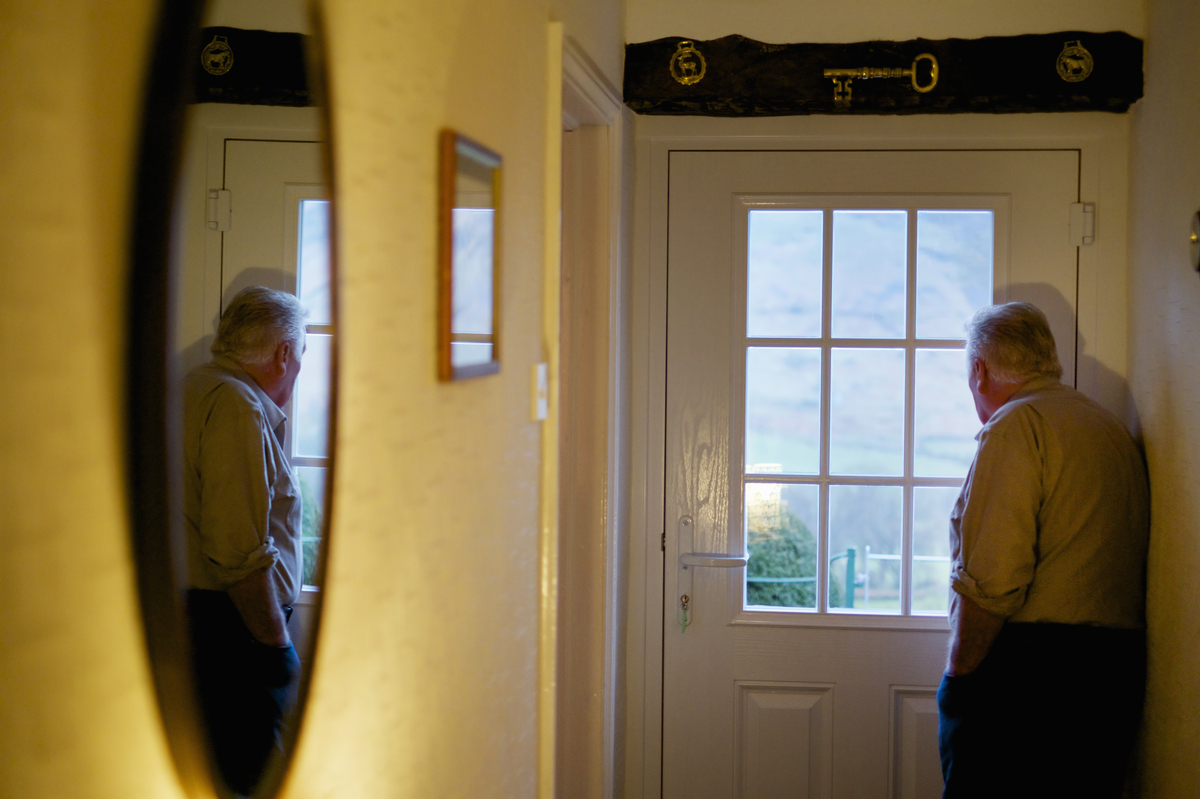[ad_1]

A brand new advisory outlines how a nationwide technique might sort out the issue of loneliness in the US.
Getty Photographs
conceal caption
toggle caption
Getty Photographs

A brand new advisory outlines how a nationwide technique might sort out the issue of loneliness in the US.
Getty Photographs
There’s an epidemic of loneliness in the US and missing connection can improve the chance for untimely loss of life to ranges similar to smoking 15 cigarettes a day, based on a brand new advisory from the U.S. Surgeon Basic.
The report launched on Tuesday, titled “Our Epidemic of Loneliness and Isolation,” finds that even earlier than the COVID-19 pandemic, about half of U.S. adults reported experiencing measurable ranges of loneliness.
And it warns that the bodily penalties of poor connection will be devastating, together with a 29% elevated threat of coronary heart illness; a 32% elevated threat of stroke; and a 50% elevated threat of growing dementia for older adults.
“It is exhausting to place a price ticket, if you’ll, on the quantity of human struggling that individuals are experiencing proper now,” Surgeon Basic Dr. Vivek Murthy instructed All Issues Thought of.
“In the previous couple of a long time, we have simply lived by way of a dramatic tempo of change. We transfer extra, we alter jobs extra typically, we live with know-how that has profoundly modified how we work together with one another and the way we speak to one another.”
“And you’ll really feel lonely even when you’ve got lots of people round you, as a result of loneliness is in regards to the high quality of your connections.”

U.S. Surgeon Basic Dr. Vivek Murthy says the speedy tempo of life has elevated the issue of loneliness.
Drew Angerer/Getty Photographs
conceal caption
toggle caption
Drew Angerer/Getty Photographs

U.S. Surgeon Basic Dr. Vivek Murthy says the speedy tempo of life has elevated the issue of loneliness.
Drew Angerer/Getty Photographs
Throughout age teams, individuals are spending much less time with one another in individual than 20 years in the past. The advisory reported that this was most pronounced in younger folks aged 15-24 who had 70% much less social interplay with their buddies.
Murthy mentioned that many younger folks now use social media as a substitute for in-person relationships, and this typically meant lower-quality connections.
“We additionally know that for some children, being on-line has been a approach to discover group at a time when lots of them haven’t been capable of,” he mentioned. “What we have to shield in opposition to, although, are the weather of know-how, and social media particularly, that search to maximise the period of time that our kids are spending on-line on the expense of their in-person interactions.”
Advisories are reserved for points deemed important public well being challenges that “want the American folks’s speedy consideration,” based on a press release from Murthy, who has spoken overtly of his personal experiences with loneliness up to now.
In response, the advisory outlines the framework for a brand new nationwide technique. It’s based mostly on six foundational pillars, that are:
- Strengthening social infrastructure, which incorporates issues like parks and libraries in addition to public applications.
- Enacting pro-connection public insurance policies at each degree of presidency, together with issues like accessible public transportation or paid household depart.
- Mobilizing the well being sector to handle the medical wants that stem from loneliness.
- Reforming digital environments to “critically consider our relationship with know-how.”
- Deepening our data by way of extra sturdy analysis into the problem.
- Cultivating a tradition of connection.
Murthy mentioned loneliness is not a uniquely American drawback, however as an alternative a function of recent life across the globe. But he famous that within the U.S. participation in group organizations — from religion teams to leisure leagues — has declined in latest a long time.
“So we’re seeing extra forces that take us away from each other and fewer of the forces that used to carry us collectively,” he mentioned.
The advisory comes on the again of quite a few research lately that warn of the psychological and bodily risks of loneliness.
A 2022 paper from Johns Hopkins College additionally discovered socially remoted older adults had the next likelihood of growing dementia than their friends.
“Social connections matter for our cognitive well being, and the chance of social isolation is probably modifiable for older adults,” Thomas Cudjoe, an assistant professor of medication at Johns Hopkins and a senior writer of the research, mentioned in a press release.
Murthy mentioned loneliness can influence folks in a wide range of methods, so understanding the indicators is step one to addressing it.
“Some folks react to loneliness by withdrawing and getting quiet. Others react to loneliness by changing into irritable and indignant, they usually might lash out extra,” he mentioned. “That is why generally it takes slightly time to essentially mirror on what’s taking place in our life. And generally we want anyone else to inform us, ‘Hey, you’ve got been withdrawing extra’ to assist us perceive that we would truly be coping with loneliness.”
[ad_2]
